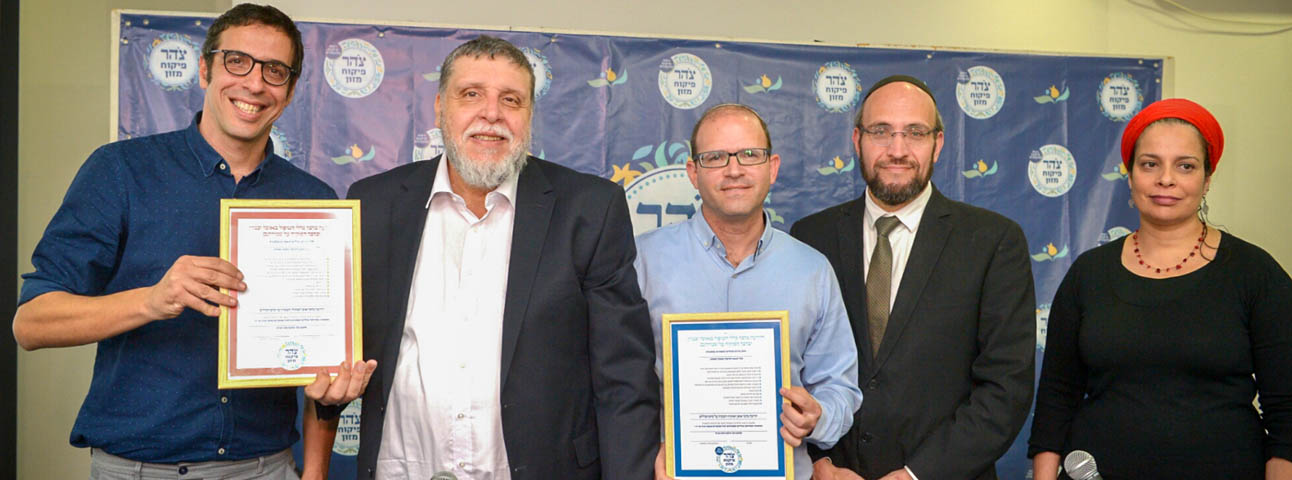The Chief Rabbinate's Monopoly is Crumbling - And That's a Great Thing

Recently Tzohar, a Zionist-Orthodox rabbis organization announced the establishment of a private entity to oversee kosher dietary regulations—kashrut-- in Israel. The establishment of such an entity was legitimized in a recent Supreme Court ruling, which for the first time—opened up the Chief Rabbinate's monopoly of religious services, to direct competition. This praiseworthy step will have concrete benefits---in improving service and reducing prices, and no less significantly—in removing the chief rabbinate from our dinner table.
The move is another nail in the coffin of the Rabbinate’s monopoly over religious services, and another important milestone on the way to the separation of religion and state.
In significant areas of life, the Chief Rabbinate (including the rabbinical courts, the religious councils, and more), exercises a monopoly by virtue of the law. This is the case with respect to matters of personal status, conversion, kashrut, and other religious services. Over the years, the provision of these services has turned into an industry, with vested interests, political power, and a lot of money, and has aroused considerable criticism from the State Comptroller, other audit bodies, and the Supreme Court.
So it's not at all surprising that the data from the Israeli Democracy Index (Israel Democracy Institute, 2017) on the public's trust in government institutions reveal that only 20% of the public place their trust in the Chief Rabbinate. This is the lowest-ever percentage, and ranks last in the public's level of trust as compared with trust in other government institutions.
Changing the situation by way of legislation is almost impossible because of the ultra-Orthodox control of the Chief Rabbinate, providing it with a political shield in the Knesset and perpetuating its monopoly. Clearly, change can be achieved only thru grassroots, bottom-up action.
These are the first steps on the path towards reducing the involvement--- or many would say—interference—of the religious establishment in the lives of Jews in Israel, and on the road to the much-needed partial separation between religion and state.

Indeed, in recent years, civil society organizations—-Orthodox and others –are stepping up to the plate to fight for the privatization of religious services. The first action towards achieving this goal was to challenge the Chief Rabbinate's monopoly on religious services, sometimes doing so even in violation of the law, and eventually --winning the court's recognition. Such recognition also applies to conversion, and to some extent—to marriage and to the kashrut market. In all these areas civil society organizations took the lead and began to provide alternative religious services to those of the rabbinate, with the intention of providing better and more efficient service, and not necessarily adhering to the Chief Rabbinate's stringent religious standards.
Now, this process received a major push, with the establishment of Tzohar’s new kashrut body, breaking down the Chief Rabbinate's monopoly and making it less and less relevant. For the first time, Israeli citizens will be able to choose religious services, rather than being forced to use those of the rabbinate—a rabbinate in which they place so little trust.
But the change goes deeper and is even more fundamental. In effect, the growing pluralism and diversity of religious services removes the state, the rabbinate and the rabbis from our everyday lives, at least in some areas, and allows Jews in Israel freedom of choice in matters that are personal, and belong in the intimate realm of an individual's beliefs and his /her relationship to God.
These are the first steps on the path towards reducing the involvement--- or many would say—interference—of the religious establishment in the lives of Jews in Israel, and on the road to the much-needed partial separation between religion and state.
The article was published in the Forward
